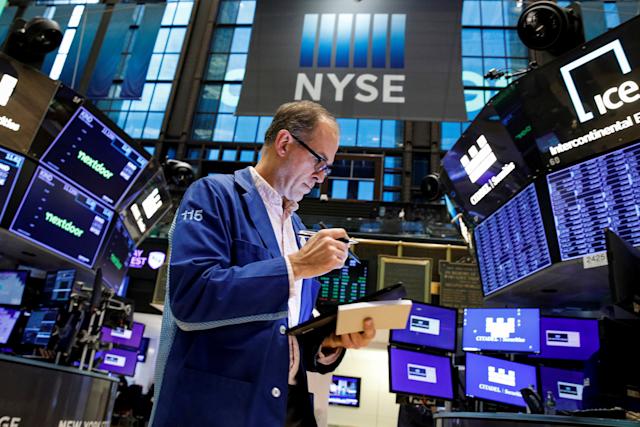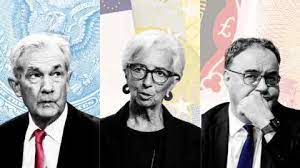The war in Ukraine has tended to increase uncertainty regarding inflation and growth prospects. When and with what consequences this war will end is pure speculation, but capital markets are expected to build a certain immunity to the headline risks in the coming weeks. The medium- to long-term consequences, on the other hand, could be significant. It is possible that we are at the beginning of a new bloc formation or a new Cold War. This would put a significant damper on globalization and further fuel higher structural inflation.
Major US stock indices extended gains on Thursday despite the US economy’s unexpected contraction as investors hoped the economic downturn would soon cause the Fed to slow its rate-hiking pace. The Dow jumped 1.02%, the S&P 500 rallied 1.21% and the tech-heavy Nasdaq advanced 1.08%. In the meantime, European bourses also climbed in a volatile session yesterday, with the Euro Stoxx 50 index up 1.23%.
Summary
- Shares in Asia mainly fell on Friday, with the Hang Seng sinking near 2.5% and the Shanghai Composite declining notably after China’s leadership signalled no big stimulus for the economy was on the way and kept the strict zero-Covid policy. The Nikkei dropped for the first time in 3 sessions after data showed the US economy shrinking for the 2nd straight quarter in Q2. The ASX traded at a 2-½ month high, however, with all sectors gaining.
- European shares are set to rise, with US equity futures trading higher on positive earnings from Amazon and Apple.
- Oil prices were set to end the week higher after another period of heightened market volatility as traders weighed signs of tightening supplies against worries over an economic slowdown. The OPEC+ is scheduled to meet on 3rd August where the US is hoping for an announcement of additional supply, although analysts warned that member countries are already struggling to meet production quotas.
- The US economy shrank an annualised 0.9% between April and June, following a 1.6% drop in Q1 and technically entering a recession. That was worse than expectations for a gain of 0.3% due to weaker consumer spending and declines in business and residential investment. Still, Treasury Secretary Janet Yellen gave a glass-half-full assessment, acknowledging a slowdown that she called necessary to tame inflation while rejecting the notion the country was in recession.
- Apple shares rose in after-hours trading after the company said sales should “accelerate” in the current quarter after it posted third-quarter results that were better-than-expected.
- Amazon shares shot up more than 12% after the closing bell yesterday, as the online retailer reported quarterly sales that beat Wall Street estimates.
- Mastercard became the latest payments company to signal upbeat spending trends as the card giant posted a sizeable earnings beat and said it had yet to see notable impacts from inflation on its volumes.
- BNP Paribas this morning reported better-than-expected profit in the second quarter, after bad loan provisions dipped despite the economic slowdown and as businesses remained buoyant, particularly its investment banking division.






